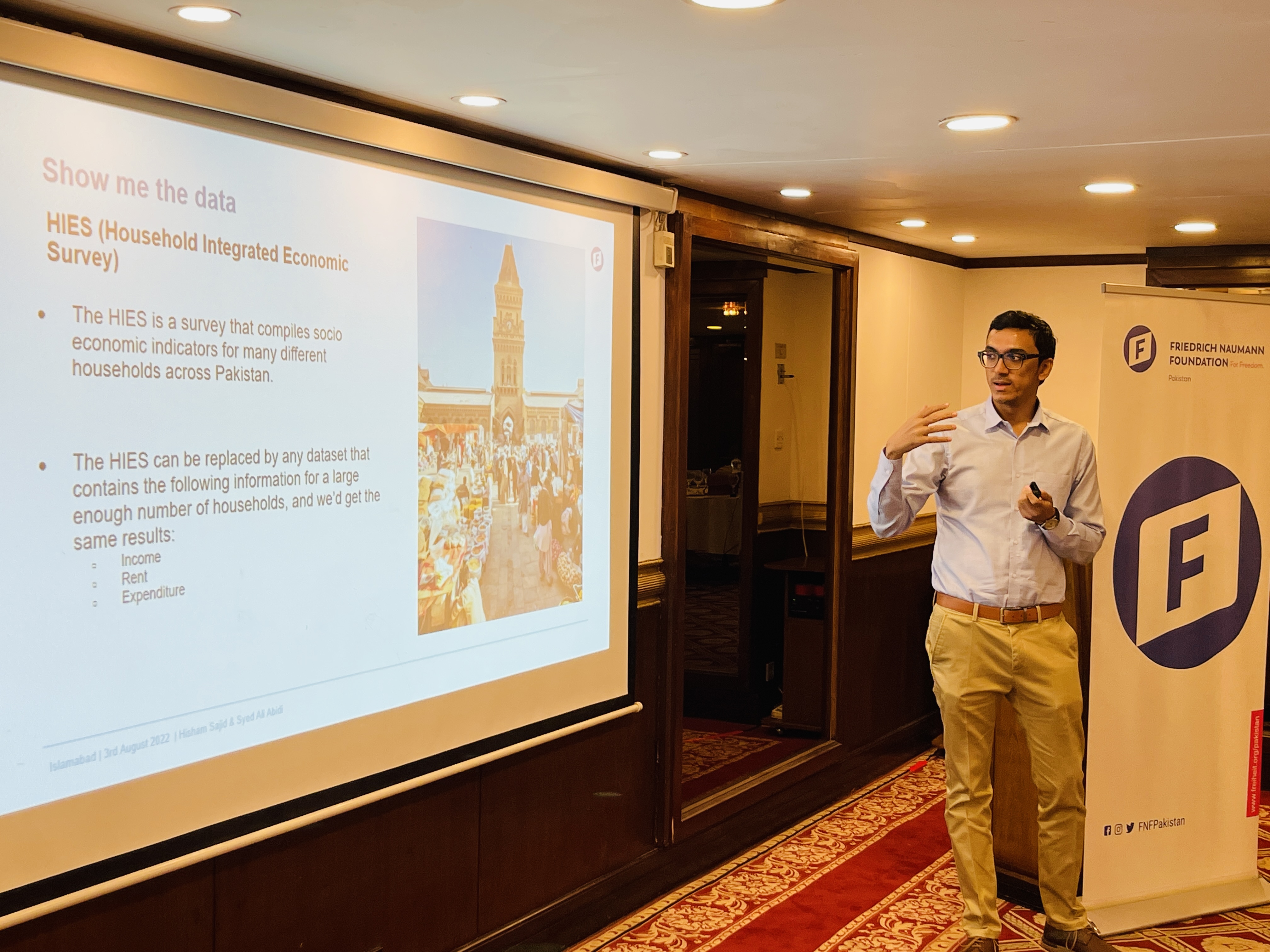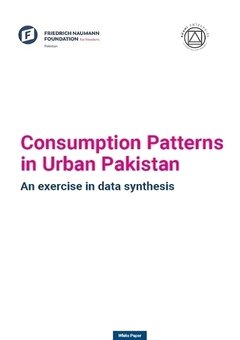Pakistan
A new econometric data model

Syed Ali Abidi Presenting the paper "Consumption Patterns in Urban Pakistan"
© Friedrich Naumann Foundation for Freedom Pakistan
We believe the future potential of this model lies in helping tax evasion and determining supply-side decisions and business investments etc.
“Nowadays economic development is so disruptive and fast that traditional statistics and data collection has become nearly meaningless because the data is already 1 and half years old by the time it is released. That is not enough! We need to make decisions faster and have up to date information at hand. This is why we have come up with a unique data synthesising model which gives us information on the economy nearly live. This helps government, administration and businesses alike and even private citizens,” shared Ms. Birgit Lamm, head of Country Office FNF Pakistan, during the soft launch of the white paper titled “Consumption Patterns in Urban Pakistan”.
Talking about why this new model was developed she explained that even private citizens need to know how the market and consumption patterns develop in order to make informed decisions about their own consumer behaviour and spending. “The developers of Karachi Futures have created a new model using geospatial and publicly available data to actually describe the consumption patterns in Pakistan in an instance,” she elaborated.
Explaining the main purpose of the study Mr. Hisham Sajid, a data science practitioner by profession and co-founder Karachi Futures, explained how they are combining and synthesizing multiple open data sets to estimate consumption patterns at a fine geospatial scale. The key concept being, breakdown of urban centres in Pakistan into a uniform 1x1 km grid, and disaggregation of consumption at that spatial resolution. Pakistan has a lot of data - but most of it is often disjointed, unreliable and difficult to access. Mr. Hisham went on to explain how relying on only open data ensures the model does not depend on heavy data incensing fees or contractual obligations that come with sourcing data from closed sources.
"We classified data into 4 distinct categories in terms of ease of access and use - clean open data, unclean open data, clean closed data and closed data. For our model, we made a conscious decision to work only with open data, whether clean or unclean," demonstrated Mr. Hisham.
“We have come up with a method to look at questions like, how much is a particular neighbourhood spending on rent, education, or fuel. This technique will be useful for aiding precise policy interventions, helping academia conduct more effective research on consumption patterns in Pakistan, and enabling businesses to make informed investment decisions and expansion plans,” explained Mr. Syed Ali Abidi, Lead Econometrician at Karachi Futures, who developed the economic model for this white paper.
Pakistan has a lot of data - but most of it is often disjointed, unreliable and difficult to access.
“This research effort by the Karachi Futures team can help decision makers develop an understanding on the state of consumption trends. We believe the future potential of this model lies in helping tax evasion and determining supply-side decisions and business investments etc.” as shared by Ms. Puruesh Chaudhary CEO AGAHI Enterprise, Co-Founder Karachi Futures.
The white paper was commissioned by Friedrich Naumann Foundation for Freedom Pakistan to Agahi Enterprise Private Limited with Karachi Futures Team developing the econometric model and interactive maps. The maps can be accessed at: https://github.com/hishamsajid/disaggurbanpak_kf/
